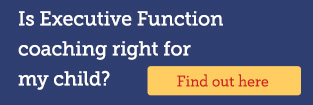As academic coaches, we have a unique opportunity to observe our students’ learning over time, across subjec t areas, and through a variety of assignments over the span of a school year. We gain insight into what causes students' poor academic performance and teach them tools and strategies to increase their effectiveness. Some of us (myself included) work with students who are taking the same course, with the same curriculum, in the same school, at the same time, but with different teachers. What’s astonishing is how very different those students’ learning experiences can be when the syllabi are nearly identical. It’s got to be the teacher, right?
t areas, and through a variety of assignments over the span of a school year. We gain insight into what causes students' poor academic performance and teach them tools and strategies to increase their effectiveness. Some of us (myself included) work with students who are taking the same course, with the same curriculum, in the same school, at the same time, but with different teachers. What’s astonishing is how very different those students’ learning experiences can be when the syllabi are nearly identical. It’s got to be the teacher, right?
Turns out, there’s plenty to consider when accounting for differences in academic performance:
-
The fit between teacher and student, personality-wise
-
A student’s strengths and challenges as they relate to the subject matter
-
A teacher’s skill in presenting material and developing assignments that encourage deep understanding of a given topic
-
How a student manages the short and long-term assignments for a class amid competing demands of other classes and activities. (This is a big part of how academic coaching helps students to achieve success.)
As this list reveals, it’s not just the teacher’s ability to instruct or to be warm and fuzzy; there are other elements at play when we consider a parent's question: Why is my child struggling in school?
Recently, Laurie Levy, writing for the Huffington Post (15 Ideas From Parents About What Constitutes High Quality Learning), reviewed parents’ feedback on how to enhance children’s learning at school.* Levy reflects parents’ frustrations with standardized testing and the trend toward introducing academics to younger and younger children. Parents also noted the importance of teachers’ roles in fostering executive function development.
Classrooms that are too visually stimulating can distract students with attention challenges. Strategies such as labeling bins and shelves help students learn to categorize and take ownership for keeping a classroom tidy. Additionally, many students need support to manage their desks and to create systems to maintain their materials.
“Set up "quiet corners" or areas where kids can go when they need a break.”
Students who are working on emotional regulation skills need ready access to apply strategies they are learning from supports ranging from Occupational Therapists, to Speech-Language Pathologists, Psychologists, School Counselors, and Yoga Therapists. Students can benefit from establishing a quiet corner within the classroom, as it destigmatizes use of strategies by not banishing the child from the classroom, and provides a model of self-advocacy for the entire class.
Other parents’ ideas from Levy’s article relate to metacognition for both students and teachers:
This proactive approach can help both the the teacher and the student recalibrate and review before getting stuck in a big learning gap. Sometimes, a reason for students' poor academic performance is when formal exams are few and the amount of material is great. I see this issue with students who have vocabulary tests throughout the year that are cumulative in nature. If the earlier material is not well-learned, adding new information on top of that becomes an avalanche to students, unless systems (such as Quizlet) are in place to constantly self-test.
“How do teachers communicate what success looks like so students know when they are getting it (modeling, self assessment, rubrics)?”
And here’s where I witnessed a substantial difference between my students’ experiences in a class they were taking with different teachers. One teacher provided a clear, accessible rubric for each assignment, while the other had a multi-step process for accessing rubrics. One teacher had directions for assignments in a single area on her website, whereas the other had an abbreviated description in one area and an elaborated description in another area. One had somewhat liberal grading criteria for writing assignments, while the other had more precise expectations. Moreover, the students themselves had differing perspectives on their teachers’ openness to 1:1 check-ins and discussions about confusing material. One student felt very comfortable self-advocating and enjoyed chatting with her teacher, while the other student felt intimidated by his teacher’s demeanor. This is not to say one teacher was better than the other; rather, it illustrates the complex interplay of factors that influence a student’s academic performance in a given class.
Both students are learning how to increase their effectiveness in their classes, and I’m careful to not play the blame game with regard to teachers. My message to students is that they are responsible for their learning and their academic performance. The challenges that they face with a particular subject or teacher present opportunities to speak up, reach out, and persist in the midst of difficulties, which are invaluable skills for life. Every day, academic coaches help students modify and implement some of the same ideas in Levy’s article, such as de-cluttering their workspaces, finding emotional regulation strategies that fit their style, and self-assessing to make sure they are on track. By capitalizing on their executive function skills, students can avoid the trap of blame-the-teacher so that they can tackle any subject, no matter who's teaching it.
* What caught my eye with her article, in addition to its focus on learning environments from a parent’s perspective, was her home city of Evanston, IL, where Beyond BookSmart’s academic coaches work 1:1 to help students develop their executive function skills.
Is your child struggling in school? Click below to find out how Executive Function coaching can help turn poor academic performance into academic success!
photo credit: Anna Vignet via flickr
Posted by Jackie Stachel on 12:05 PM

Jackie Stachel is the Public Relations Director for Beyond BookSmart. She joined the company in 2010 and is based in our Boston branch. Jackie leads Executive Function presentations for parent groups throughout Massachusetts and Rhode Island. Additionally, Jackie manages our You Tube channel as well as our company blog content through editing submissions, writing articles, and collaborating with professionals from outside Beyond BookSmart to create useful, informative content. Finally, Jackie coaches students supporting them in learning and developing Executive Functioning strategies.

